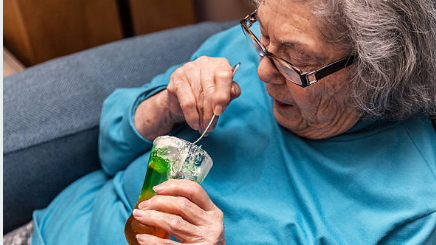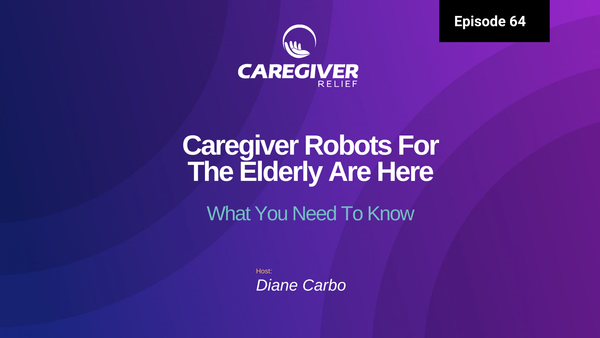Navigating Dementia and Overeating: Balancing Care and Concern
One caregiver's story of dealing with a loved one with dementia who wants to eat constantly.

Dealing with the intersection of dementia and overeating presents a unique challenge that many can relate to. Have you ever encountered a situation where a family member with dementia seems to have an insatiable appetite? The experience can be both puzzling and concerning. Consider the case of my mother - she started the day with her customary breakfast, followed by her beloved oatmeal cake as a mid-morning snack. Later on, she opted for a grilled cheese sandwich submerged in a bowl of vegetable soup, an unconventional approach she seemed to enjoy immensely.
Yet, remarkably, within half an hour, she proclaimed an overwhelming hunger. Responding with a peanut butter and banana sandwich alongside a modest portion of vegetable soup seemed to temporarily quell her appetite. Notwithstanding, she still requested a cookie, this time indulging without hesitation. Curiously, less than two hours later, the cry of hunger emerged once more. Swiftly, a boost milkshake was offered as a nourishing interlude. As dinner preparations unfolded, she delighted in snacking on the freshly chopped vegetables. Upon dinner's arrival, she eagerly consumed a substantial portion, followed by a bowl of frozen yogurt to accompany her medication routine.
Throughout the day, our shared activities kept her engaged, yet an incessant desire to eat prevailed. Is this pattern of voracious consumption normal? Should concern be warranted?
In grappling with these queries, it's essential to recognize that heightened appetite in dementia sufferers can be a complex phenomenon. Various factors contribute to this occurrence. For instance, memory lapses may lead to forgotten meals, compelling individuals to eat more frequently. Chemical changes within the brain can incite an increase in appetite, a phenomenon that has yet to be fully understood. For some, this phase is transient, destined to pass.
However, the paramount concern remains that these urges should not lead to discomfort or excessive weight gain. People with dementia often gravitate towards carbohydrates and sweets, perhaps seeking solace and relief from feelings of depression. Balancing their diet becomes pivotal, though achieving this can be easier said than done, especially when preferences veer towards comfort foods.
A noteworthy consideration pertains to those with dementia who exhibit scavenging tendencies. Instances of individuals rummaging through trash receptacles in pursuit of discarded sustenance are not uncommon. This presents risks, as they might unknowingly ingest hazardous or unsuitable foods. In these circumstances, implementing safeguards like cupboard and trash receptacle locks becomes a prudent course of action.
For those grappling with the challenge of encouraging a family member with dementia to eat, it's important to acknowledge the complexity of the situation. To offer additional guidance, here's a video resource tailored to your needs.
Caring for someone navigating the intricate terrain of dementia and overeating necessitates patience, adaptability, and a holistic understanding. By approaching this journey with empathy and proactive measures, we endeavor to maintain their well-being while embracing their evolving needs.
Our Resources section can help you find the information and tools that you need. We have courses, videos, checklists, guidebooks, cheat sheets, how-to guides and more.
You can get started by clicking on the link below. We know that taking care of a loved one is hard work, but with our help you can get the support that you need.
Click here to go to Resources Section now!
You might also like this article:







